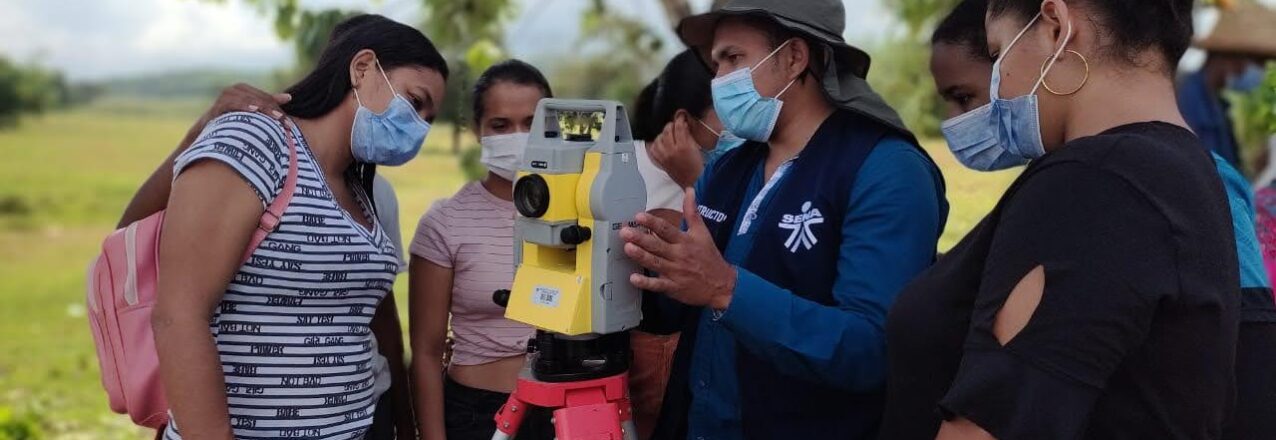A capacity building strategy is guiding budding professionals towards careers in land administration
When the Colombian government and USAID teamed up to formalize more than 3,000 parcels in the municipality of Ovejas, sourcing qualified professionals figured high on the list of challenges. Unable to fill vacant positions from the local workforce, the campaign had to field more than 50 professionals from around the country to support the endeavor.
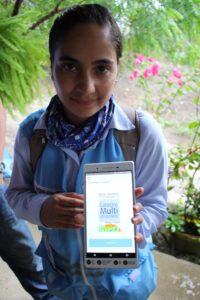 Positions included land surveyors, legal experts, knowledge management specialists, and social workers with a unique set of skills related to land rights. Ten teams made up of four diverse professionals used their skills and tools to reach rural communities, effectively communicate, formalize a property, and register a land title. The pilot employed some 60 qualified professionals, but only 6 of them were actually from Ovejas.
Positions included land surveyors, legal experts, knowledge management specialists, and social workers with a unique set of skills related to land rights. Ten teams made up of four diverse professionals used their skills and tools to reach rural communities, effectively communicate, formalize a property, and register a land title. The pilot employed some 60 qualified professionals, but only 6 of them were actually from Ovejas.
The lessons are manifold. In a region with an already weak land market, students and young professionals do not consider careers in land administration. In places like Ovejas, the national cadaster—the plot map of land ownership—is out of date and does not reflect the reality of who is occupying what parcel. Instead of registering land titles and paying property taxes, land is bought and sold informally with a paper receipt and a handshake. Few, if any, land titles exist.
Thanks to these lessons gained through the Ovejas land formalization campaign, the USAID-funded Land for Prosperity Activity is targeting young professionals in rural municipalities with the skills and knowledge to select career paths related to land formalization, restitution, and administration.
In its first two years of implementation, Land for Prosperity has held over 200 workshops and trained more than 8,000 people on skills and knowledge related to land formalization. Among them are 80 law students in their final year at the Corporación Universitaria Remington, located in Montería, Córdoba.
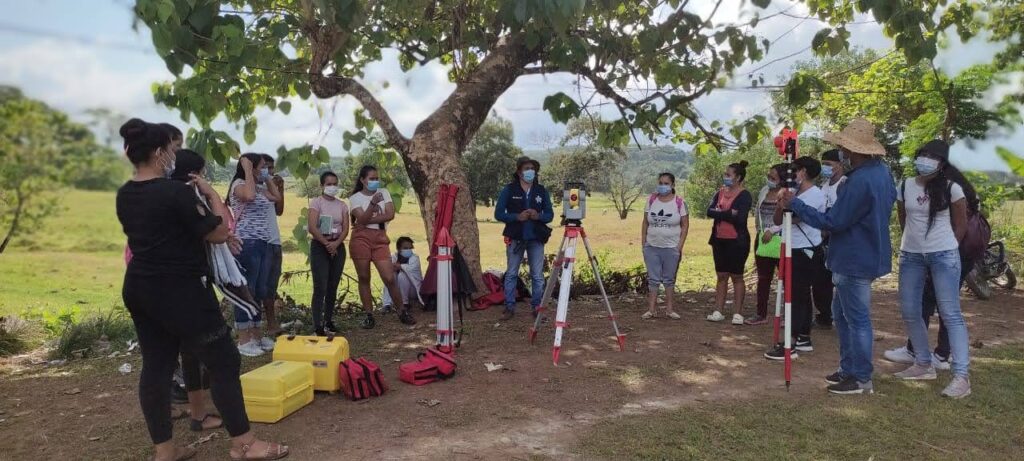
Under the USAID partnership, the law students have reviewed academic material about Colombia’s land policies and land formalization processes. The students then have the option to select an internship at the regional offices of land entities, like the National Registry Superintendence–SNR, the land cadaster entity IGAC, or they can work with municipal administrations at one of the USAID-supported municipal land offices. In Córdoba, there are currently three Municipal Land Offices in the towns of Puerto Libertador, Tierralta, and Valencia. The internship is a requirement for graduation and must be related to legal services for their communities.
“In Southern Córdoba the public sector is in need of skilled workers and funding. We need more social workers and lawyers,” explains María Angélica Sakr, coordinator of Remington University’s legal clinic in Montería. “USAID is filling a need by creating a skilled workforce and motivating professionals towards these niche areas.”
Community Mediator
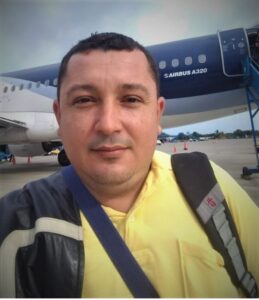
Andris Salgado, 38, plans to graduate with a law degree from Remington next year. He’s currently fulfilling his internship duties at the legal clinic in his hometown of Puerto Libertador. Since 2015, Salgado has worked as a community mediator and conciliator with support from USAID’s Access to Justice Program and the Ministry of Justice. This year, he participated in USAID-supported land administration workshops to learn more about current land policies and goals related to the 2016 Peace Accords.
“Knowing Colombia’s land laws can support rural communities with all kinds of services, from land conflicts to assigning parcels to farmers who have been in possession of their farms for over ten years,” says Salgado.
A legal expert with experience moderating many types of conflicts among families and neighbors, Salgado can now provide the people of Puerto Libertador with counsel and legal advice related to land formalization and access to land.
Following graduation, Salgado hopes to continue working with vulnerable populations as an advocate.
“There are lawyers in Puerto Libertador, but none have this kind of experience. I have always wanted to help the community and aimed my support at young people who cannot afford higher education.”
Land Market = Job Market
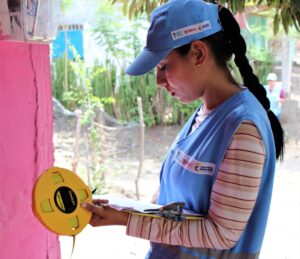
By this time next year, there will be two major massive land formalization campaigns underway in the Montes de María region, located just over 100 kilometers north of Córdoba. The two campaigns, which are taking place in San Jacinto and Carmen de Bolívar, will create at least 100 skilled jobs for legal land experts, social workers, and land surveyors.
In one of the regional capitals, Sincelejo, USAID is partnering with the Corporación Universitaria del Caribe, known as CECAR. Over the last 6 months, the program has reached more than 200 law students and 80 future social workers with workshops related to land policies and land formalization and restitution processes. All the students are in their final years of university.
“The learning spaces created by USAID are enriching for students who don’t have much experience with topics on land. They have generated curiosity and motivation for students to continue with these topics. Students benefit, the region benefits, and the university benefits,” explains Ana Claudia Castro, the workshop coordinator, who runs the CECAR’s Victim’s Justice Center in Sincelejo.
Over the next year, each semester the academic partnership will provide the students with new material. Topics include formalizing urban parcels in the name of the municipality, legal analysis of land parcels, land restitution policies, and conflict mediation related to land ownership.
The land formalization campaigns and the local land offices represent a significant part of USAID’s strategy to help the government untangle land conflicts that persisted for several generations.
In the Caribbean departments of Córdoba, Sucre, and Bolívar, thousands of victims of the conflict will benefit from land formalization services. If enough new professionals are trained, the jobs of land administration will be in the hands of the next generation.
USAID is supporting 11 municipal-wide land titling campaigns across Colombia. Each campaign depends on a variety of factors and is expected to require an average of two years to complete implementation. By 2025, the government will have updated more than 115,000 parcels in the national cadaster with the possibility of delivering up to 40,000 land titles.


